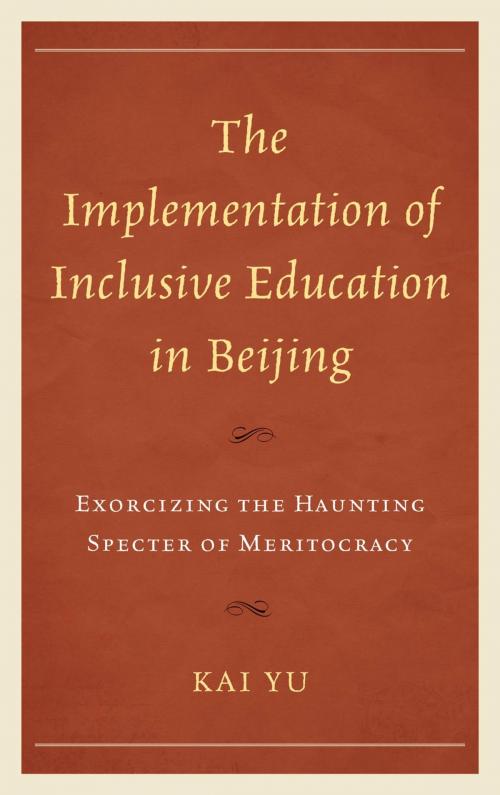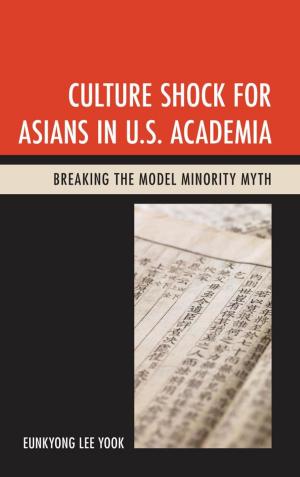The Implementation of Inclusive Education in Beijing
Exorcizing the Haunting Specter of Meritocracy
Nonfiction, Reference & Language, Education & Teaching, History, Asian, China| Author: | Kai Yu | ISBN: | 9780739146996 |
| Publisher: | Lexington Books | Publication: | February 27, 2014 |
| Imprint: | Lexington Books | Language: | English |
| Author: | Kai Yu |
| ISBN: | 9780739146996 |
| Publisher: | Lexington Books |
| Publication: | February 27, 2014 |
| Imprint: | Lexington Books |
| Language: | English |
The education implementation process in China remains uncharted by researchers. The Implementation of Inclusive Education in Beijing: Exorcizing the Haunting Specter of Meritocracy puts forth a general theory on China’s education programs, encompassing policy processes, actions, and interactions and grounded on the views of street-level bureaucrats in China. Kai Yu investigates these processes and presents teachers’ reflections on the change process, as well as implementation stories from four Beijing schools. He reports on their attitudes, their beliefs, and their pedagogical practices for implementing the innovative education program. Yu argues that the imperatives of meritocratic ideology have undermined the detracking policy and its practice. The strength of a program of change rests not so much on the power of the ideas, purposes, and values as on the reinterpretation of the implementers based on their personal understandings of institution and practice.
The education implementation process in China remains uncharted by researchers. The Implementation of Inclusive Education in Beijing: Exorcizing the Haunting Specter of Meritocracy puts forth a general theory on China’s education programs, encompassing policy processes, actions, and interactions and grounded on the views of street-level bureaucrats in China. Kai Yu investigates these processes and presents teachers’ reflections on the change process, as well as implementation stories from four Beijing schools. He reports on their attitudes, their beliefs, and their pedagogical practices for implementing the innovative education program. Yu argues that the imperatives of meritocratic ideology have undermined the detracking policy and its practice. The strength of a program of change rests not so much on the power of the ideas, purposes, and values as on the reinterpretation of the implementers based on their personal understandings of institution and practice.















